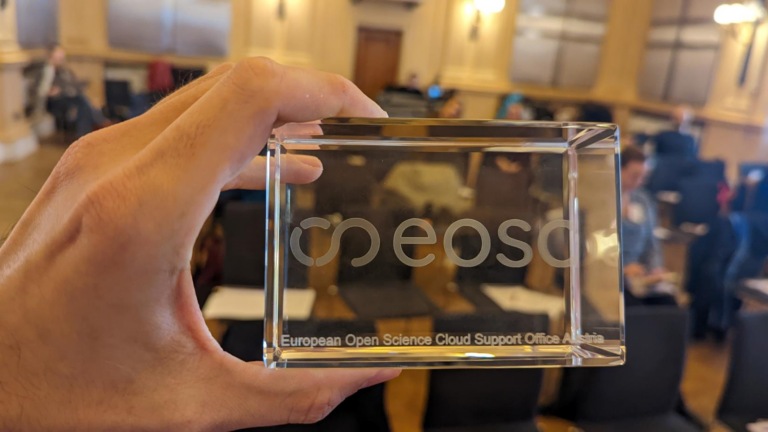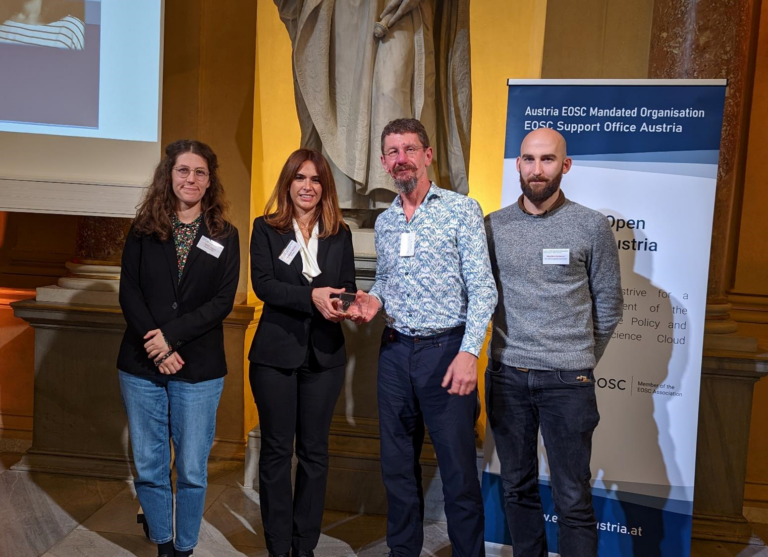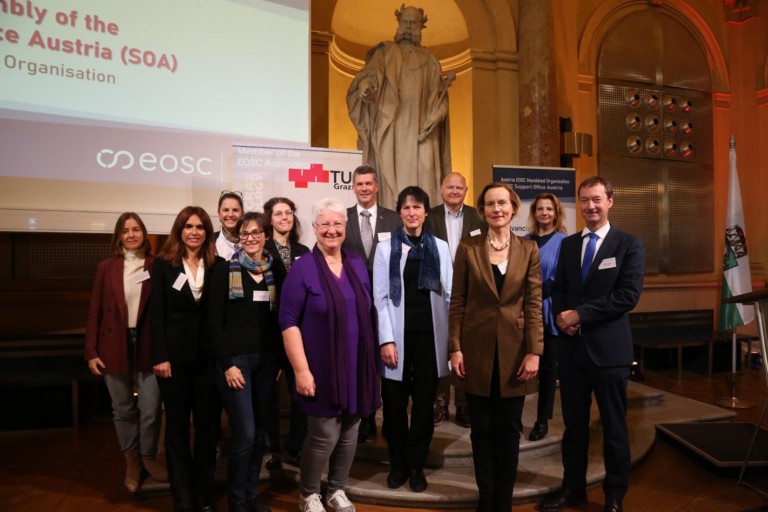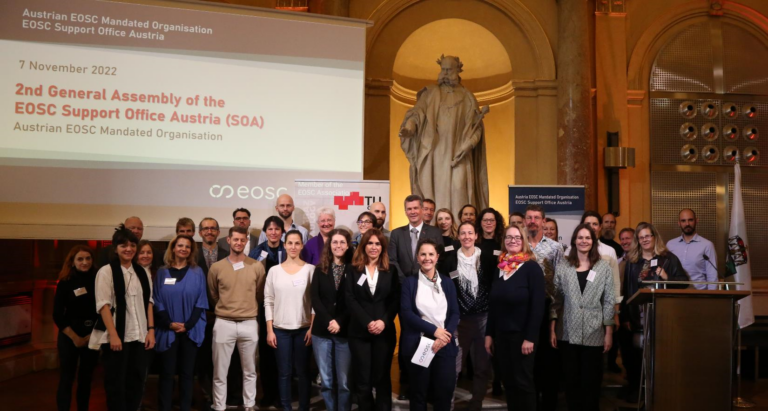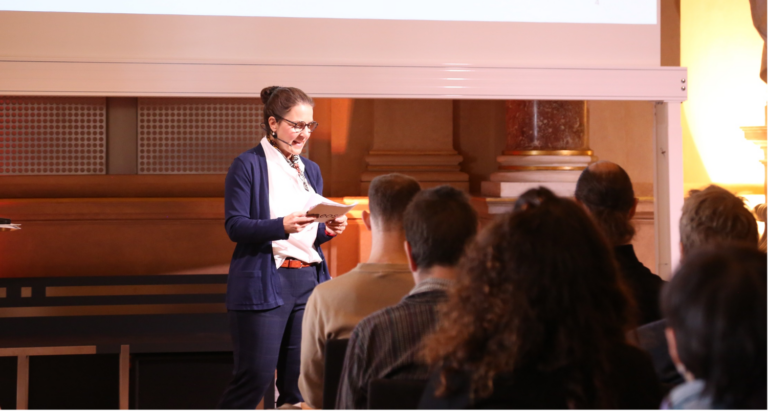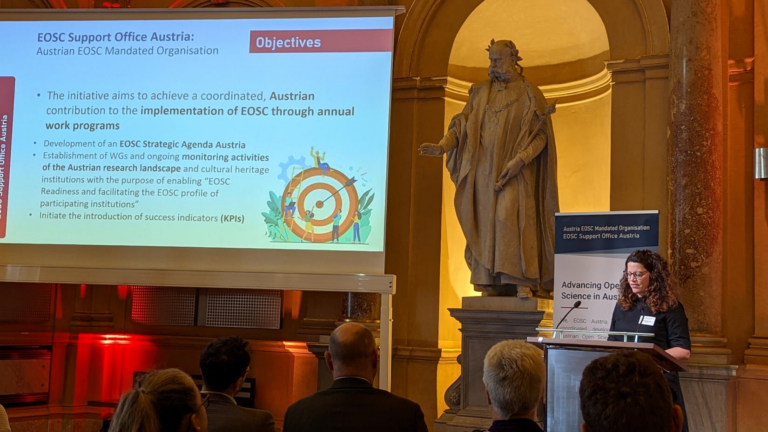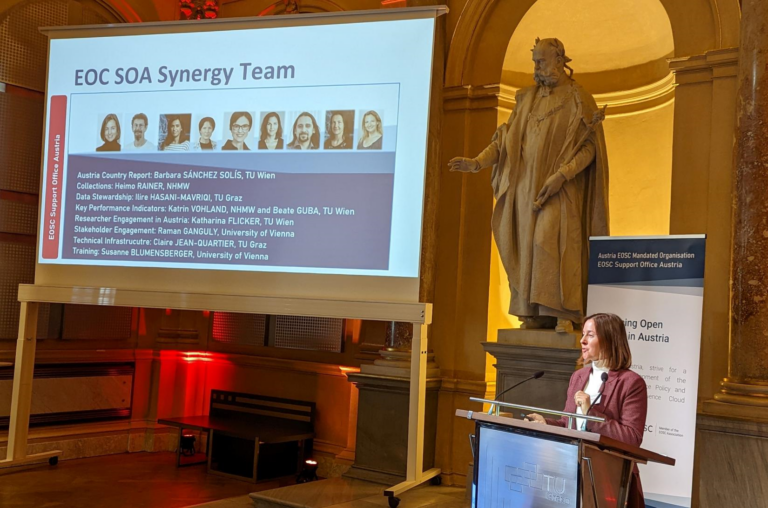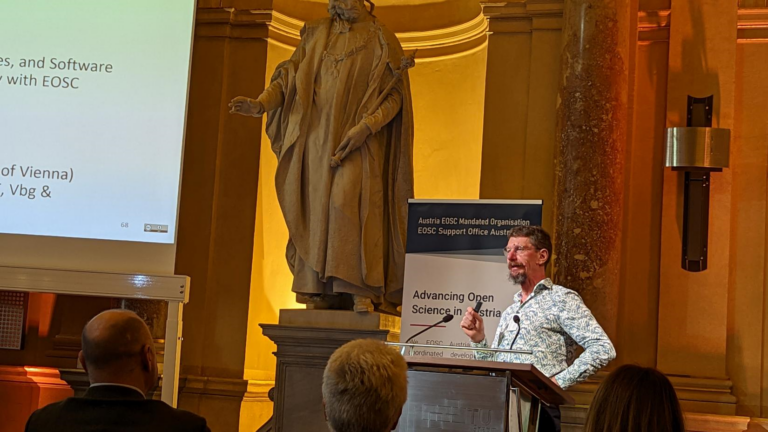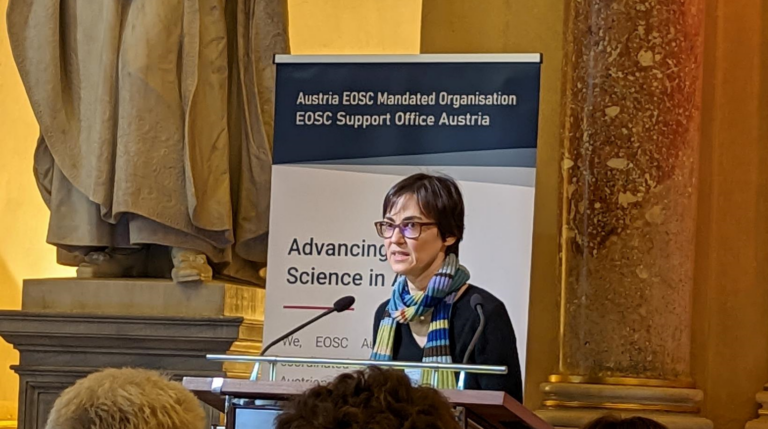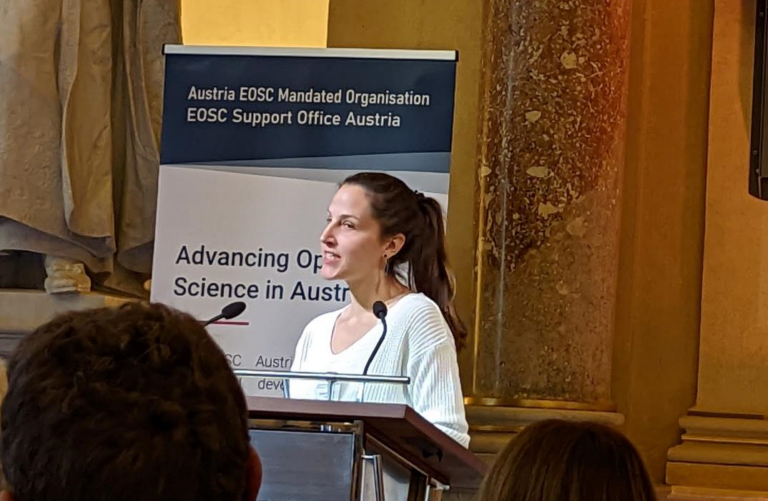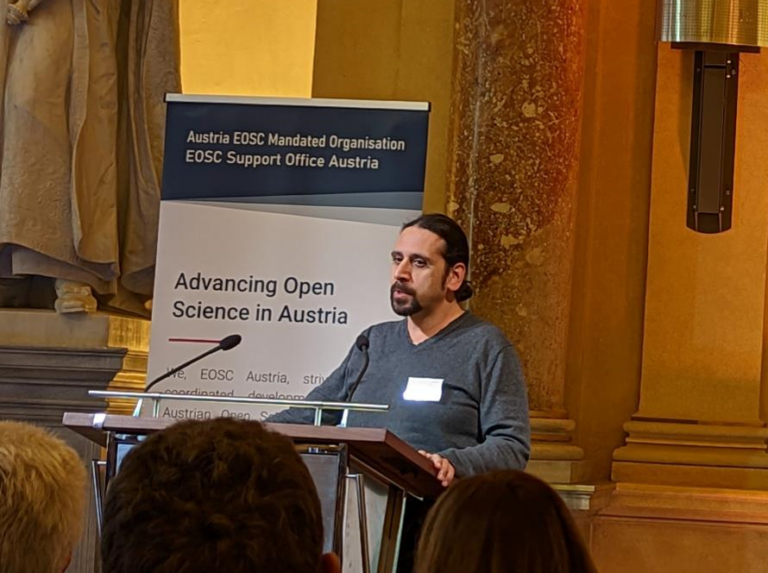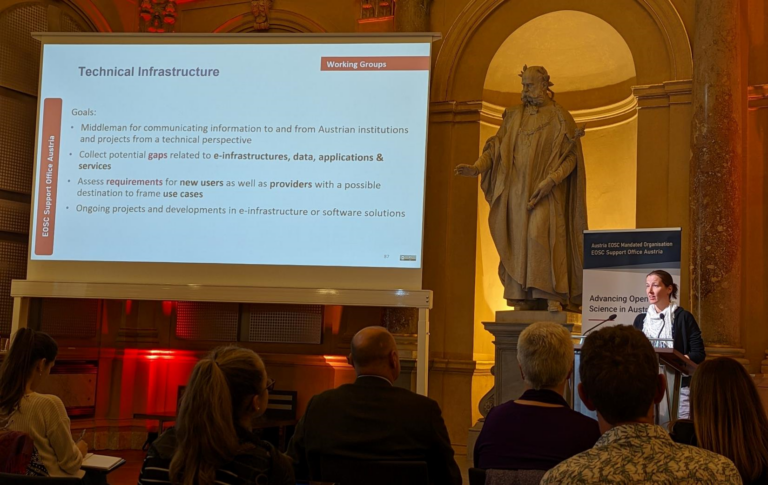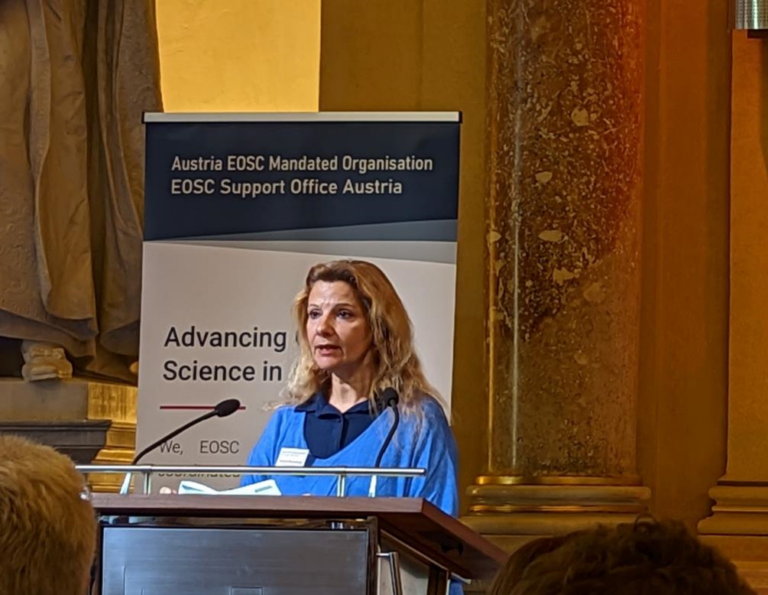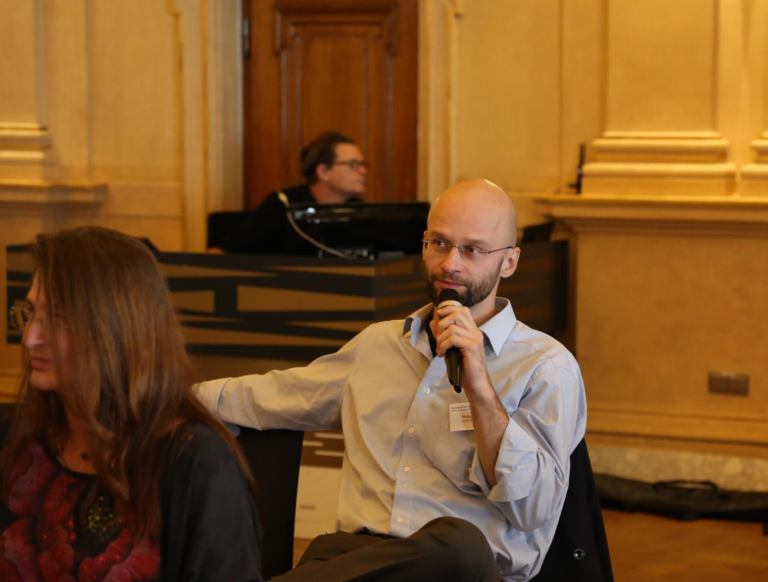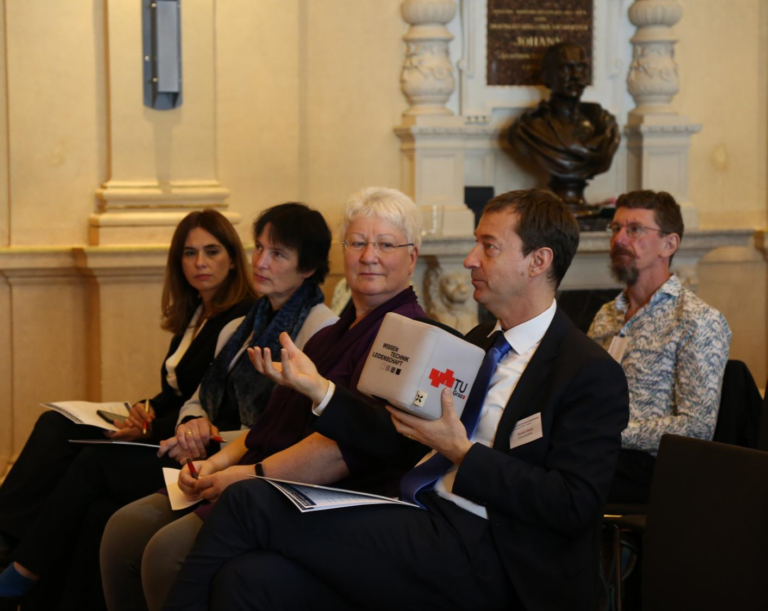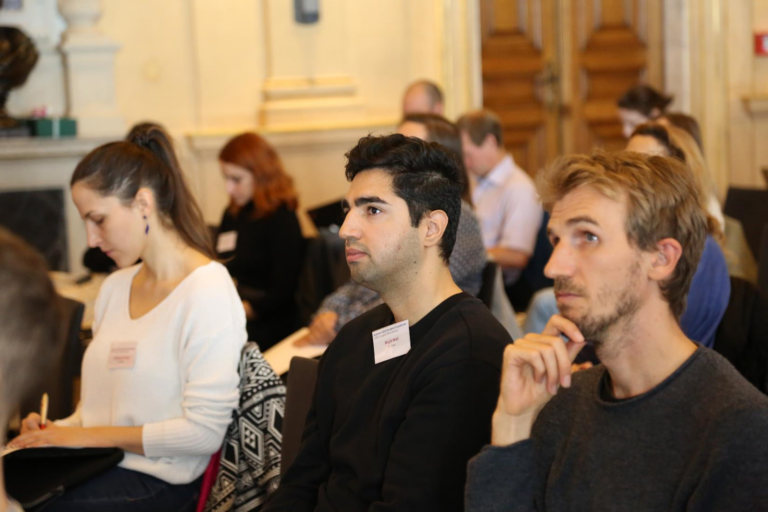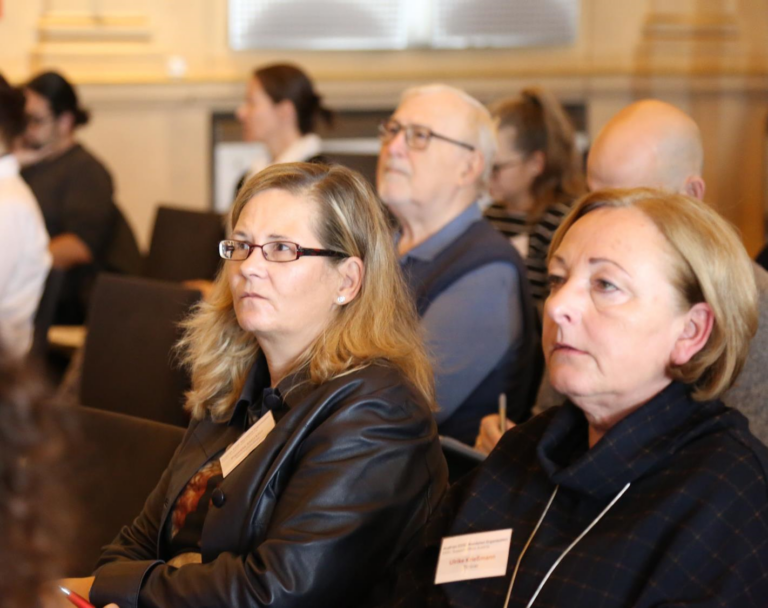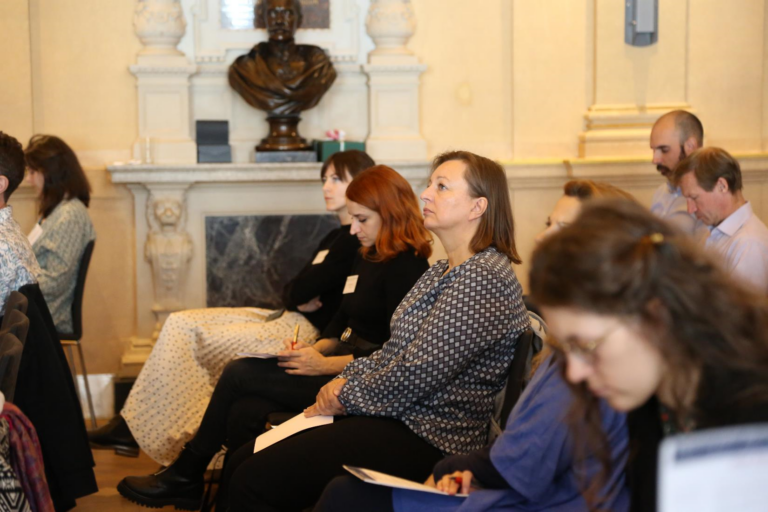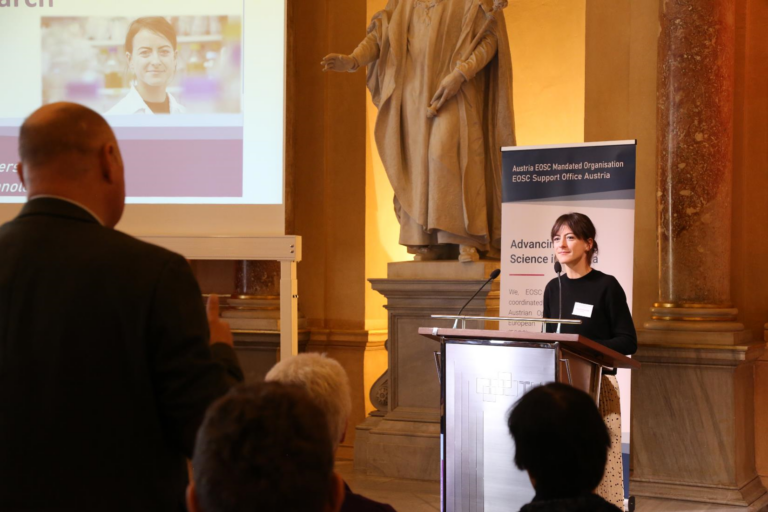Second General Assembly of EOSC Support Office Austria
Graz (Austria), 07 November 2022
© Miguel Rey Mazón (TU Graz), 11.11.2022
The second General Assembly of Austria’s Mandated Organisation – EOSC Support Office Austria (EOSC SOA) took place on Monday 7th November at the Graz University of Technology, organised by the current Chair of the Management Board Ilire Hasani-Mavriqi and her RDM Team, together with members of the EOSC SOA Secretariat. Besides taking stock of the achievements during its first year of existence in the afternoon session, the Austrian Open Science community had the opportunity to hear keynote talks on the EOSC Partnership and EOSC Association by the Association’s Secretary General Ute Gunsenheimer, on the FAIRCORE4EOSC project by coordinator Tommi Suominen (CSC), and on the importance of Open Science in microbiome research by Birgit Wassermann (TU Graz). The event was tweeted online via @eoscassociation.
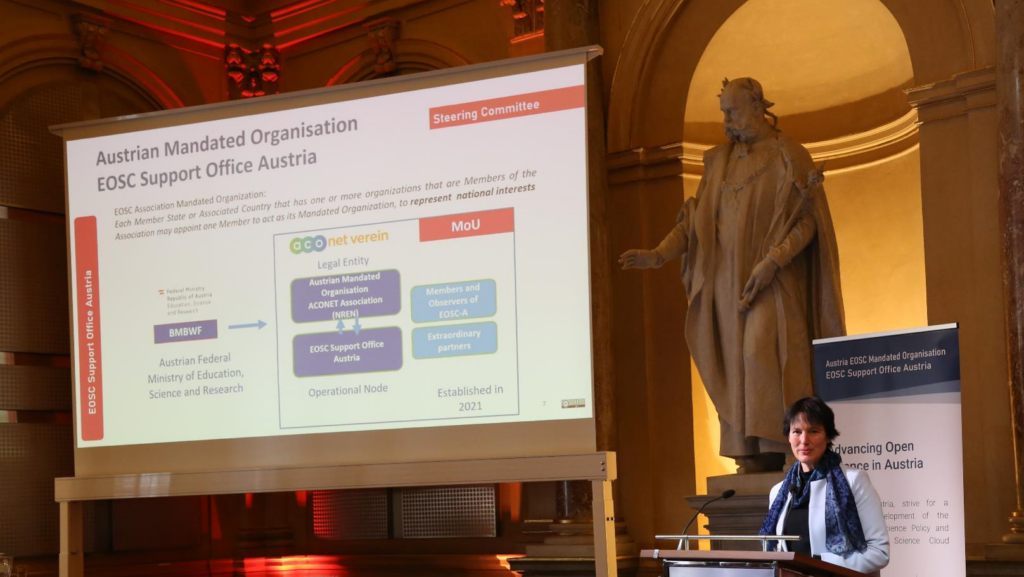
Katrin Vohland from the Vienna Natural History Museum (NHMW)
Photo: Monja Kojalek (TU Graz)
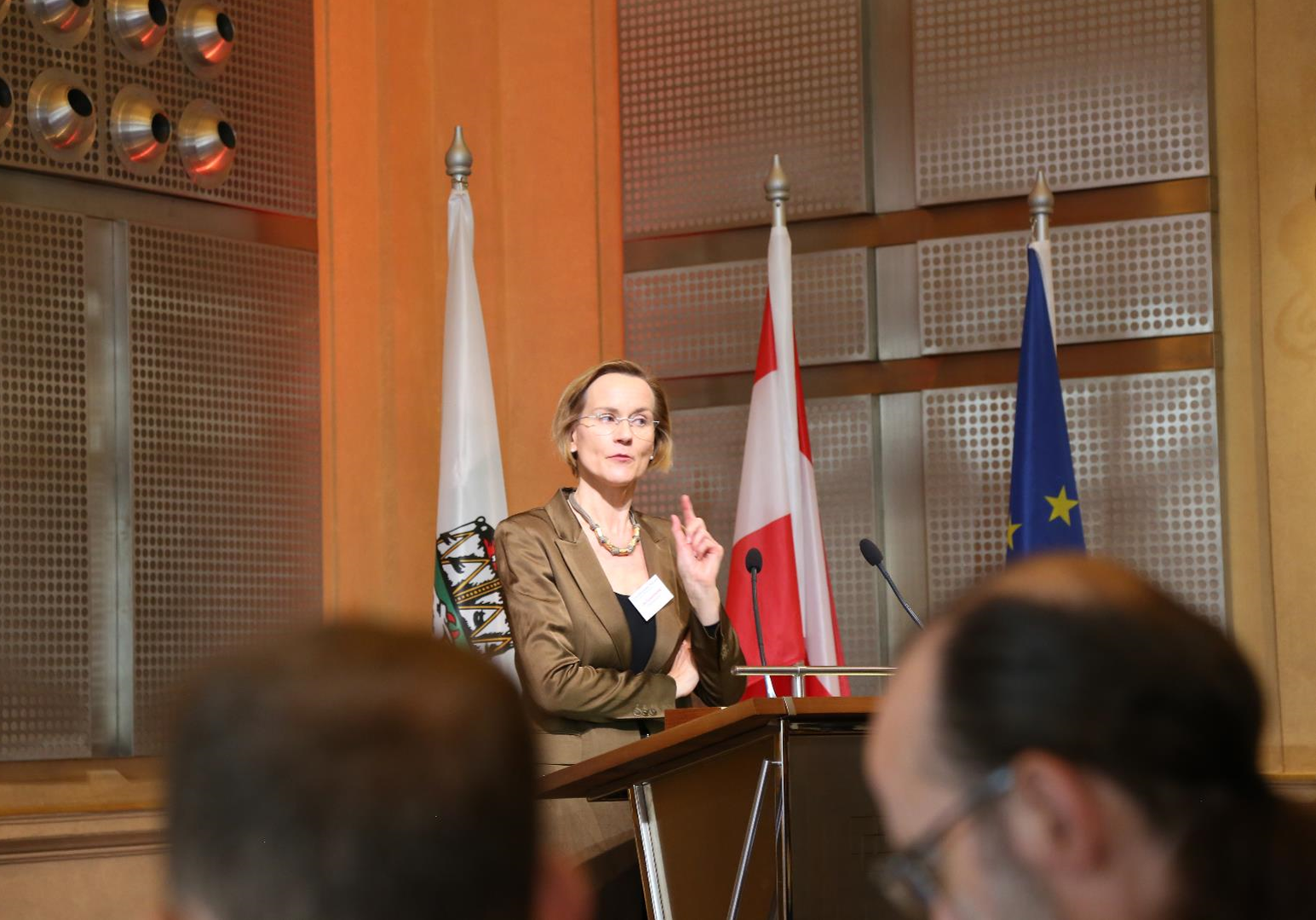
Ute Gunsenheimer (Secretary General at EOSC Association)
Photo: Monja Kojalek (TU Graz)

Tommi Suominen (FAIRCORE4EOSC)
Photo: Bernd Saurugger (TU Wien)
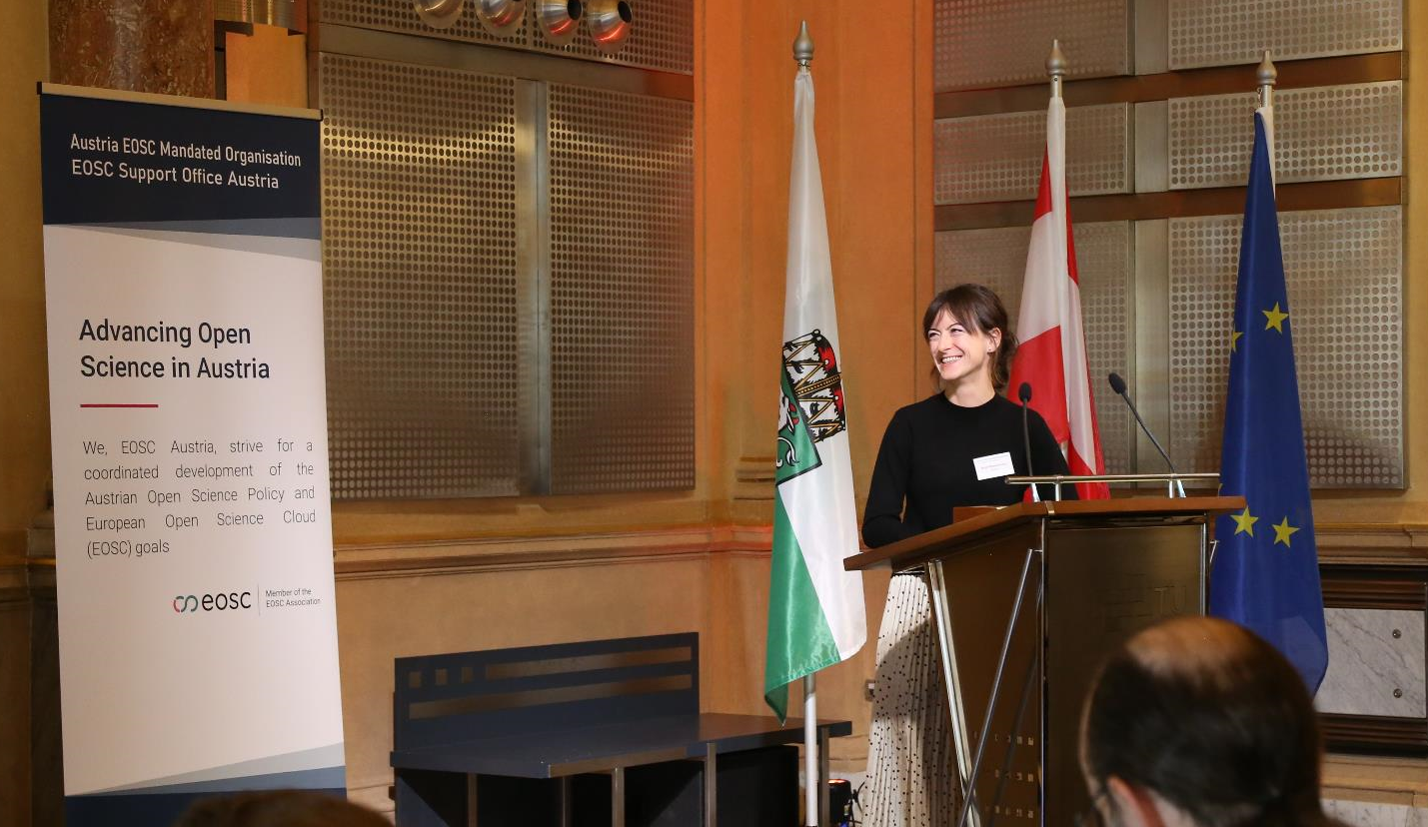
Birgit Wasserman (TU Graz)
Photo: Monja Kojalek (TU Graz)
The first speaker, Katrin Vohland from the Vienna Natural History Museum (NHMW) and chair of the EOSC SOA Steering Committee, gave an overview of what’s in store for the EOSC SOA in the coming year. She was followed by EOSC Association Secretary General Ute Gunsenheimer, who described the achievements in 2022 by the Association and the current status of the EOSC Partnership (check the Strategic Research and Innovation Agenda (SRIA) to know more about the scope & aims of the Partnership). This year has seen big progress in the EOSC Association’s maturity, contributing to the development of the wider community, and the advancement of Open Science across the EU. Fitting to the event’s scope, Ms Gunsenheimer praised Austria’s strong representation in the Association and involvement in projects and initiatives, including 12 of the 13 Task Forces that are shaping EOSC’s development—but there’s of course room for more!
The EOSC Association’s role as single voice for the research community within the EOSC Partnership relies—besides the coordinating work by the Secretariat—very much in its members, who provide the “brain trust” via the Task Forces with over 400 volunteers and help to create the “Multi Annual Roadmap” that suggests to the European Commission the preferred direction of Horizon Europe calls. The upcoming result of this cooperation will be seen in the 2023 calls that will be published early December; the new projects will join the 2021 and 2022 cohorts from the INFRAEOSC calls, which as essential contributors to EOSC’s implementation phase are a primary target for the EOSC Association, with collaboration plans underway through the EOSC Focus project, coordinated by the Association itself. Of course, EU Member States and Associated Countries are also key in this period, and to bring everyone on board the Association participates in the National Tripartite Events: several such events have taken place in the past few weeks, with more coming. Ms Gunsenheimer closed her talk with a reminder of the 2022 EOSC Symposium, the main event in the EOSC community, that will take place next week in Prague.
Attendees listened next to Tommi Suominen providing an overview of the key contributions to the EOSC-Core components carried out in the FAIRCORE4EOSC project. The nine components under development, to be tested in collaboration with five thematic case studies, will improve the discoverability and interoperability of research outputs. Birgit Wassermann from TU Graz brought a first-hand perspective from a researcher on how does microbiome research benefit from Open Science practices: through three microbiome repositories worldwide available that contain interoperable data, researchers can compare their analysis with that from others. This established practice has been accepted by as standard by journals in the field and contributes to the widespread sharing of research data. An area where data sharing on a global scale is critical is that of bog (i.e. peaty) ecosystems, which store 30% of global carbon and are in danger due to climate change, with potentially dangerous consequences for humankind through release of human pathogens.
To close the morning session, Vice-Rector (and future Rector) Horst Bischof showed TU Graz’ strategy to Open Science in all five “fields of expertise” that combines bottom-up and top-down approaches for data in specific research fields. What progress has been made? He reminded the audience that Open Science only works if researchers are actively involved in the process, which requires support and leadership by universities to enforce the right data privacy policies are in place.
In the afternoon, the EOSC SOA summarised the activities carried out in 2022. Maria Seissl, Head of the University of Vienna Library and 2nd speaker of the General Assembly, opened the session thanking all current members for the great job done so far and inviting new members to join this initiative for the good of Open Science in Austria. In her closing speech as Chair of the Management Board, Ilire Hasani-Mavriqi handed over this responsibility to Heimo Reiner from Natural History Museum in Vienna—symbolised in a glass engraving of the EOSC logo. The new EOSC SOA Management Board for 2023, with Heimo Rainer (NHMW), Ilire Hasani-Mavriqi (TU Graz), Matthias Schwarz (Climate Change Centre Austria) and Tereza Kalová (University of Vienna) joined at the stage for a picture. Ms Hasani-Mavriqi also presented the work carried out during the first year of operations that shows the strong involvement of Austrian organisations in many key EOSC-related initiatives. To complete the overview, Juliana Giroletti from TU Wien described the achievements of the Secretariat and the communication strategy, and the leaders of the EOSC SOA’s working groups (Austria country report, Collections, Data stewardship, KPIs, Researcher and Stakeholder engagement, Technical infrastructure, and Training) showed their results from the past year and the plans for 2023.
To conclude the event, Stefan Hanslik from the Austrian Federal Ministry for Education, Science and Research (BMBWF) and Austrian delegate in the EOSC Steering Board and Petra Karlhuber from the umbrella organisation (and formal EOSC Mandated Organisation) ACONET Association expressed their support to the EOSC SOA. Mr Hanslik praised the effort done by the Austrian Open Science community with regards to EOSC, and encouraged members to pursue this endeavor further to fulfil Austria’s commitment in Open Science—the national ERA portal provides a good overview of how policies at EU level are translated into the national context. Finally, Ms Karlhuber highlighted the importance of EOSC SOA as its operational unit. ACONET Association remains at a strategic non-partisan level in charge of developing Austria’s NREN.
All interested in knowing about what goes on in Austria concerning Open Science and EOSC can check out the official website to find more details: https://eosc-austria.at. You can sign up for the Newsletter at the bottom of the landing page!
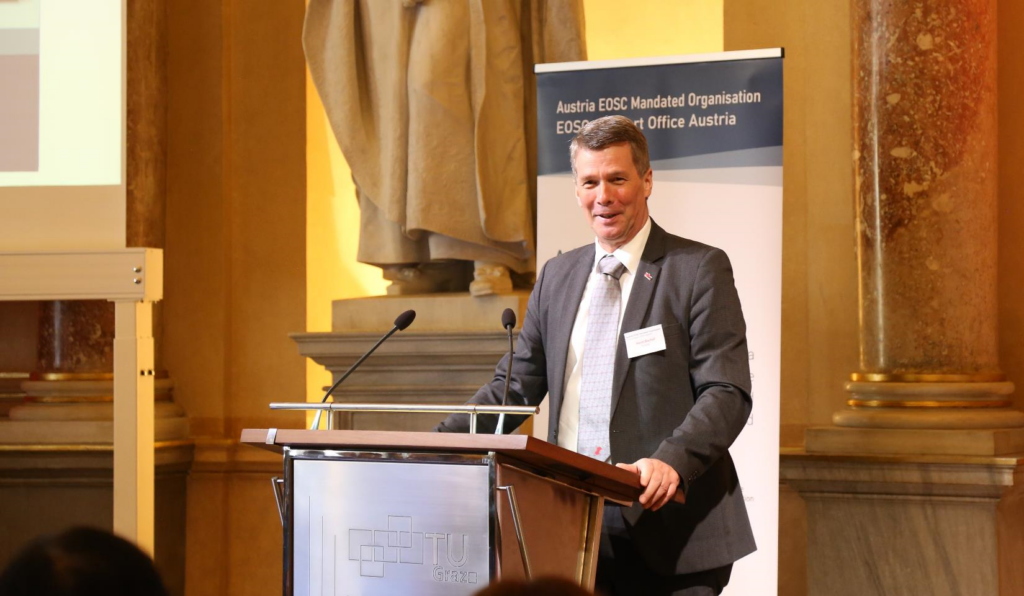
Horst Bischof (Vice Rector TU Graz)
Photo: Monja Kojalek (TU Graz)
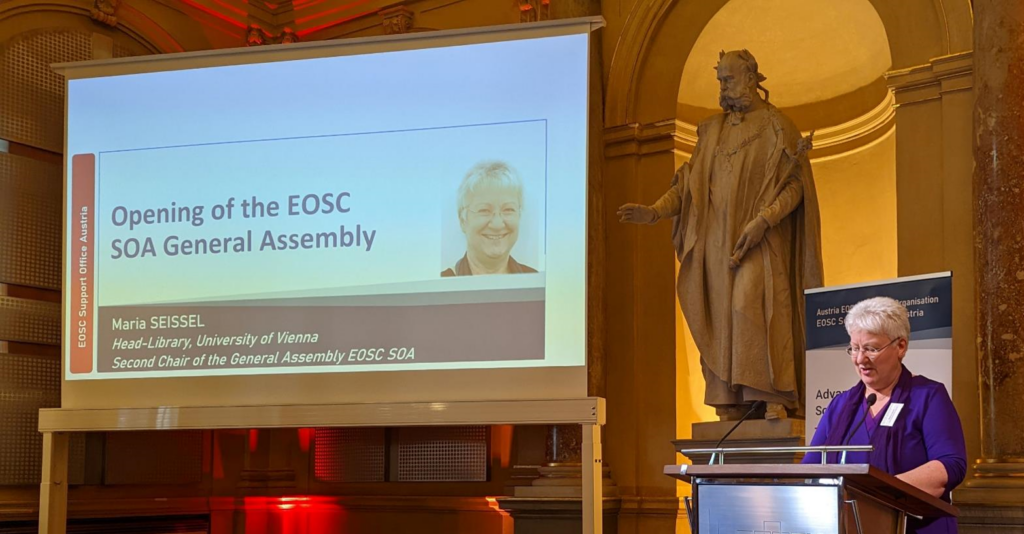
Maria Seissl (Head of the University of Vienna Library)
Photo: Bernd Saurugger (TU Wien)
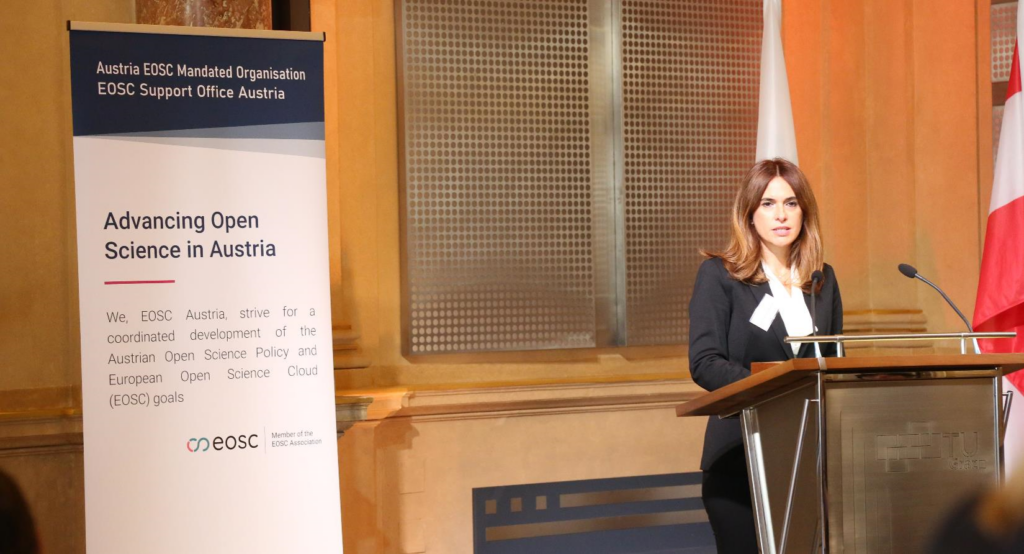
Ilire Hasani-Mavriqi (Head RDM Team, TU Graz & Chair MB EOSC SOA)
Photo: Monja Kojalek (TU Graz)
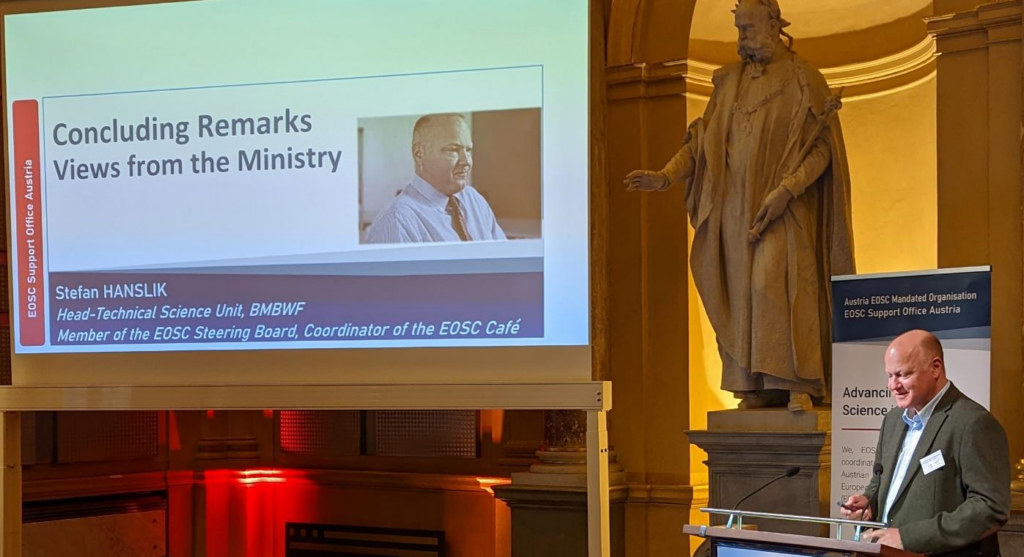
Stefan Hanslik (BMBWF)
Photo: Bernd Saurugger (TU Wien)
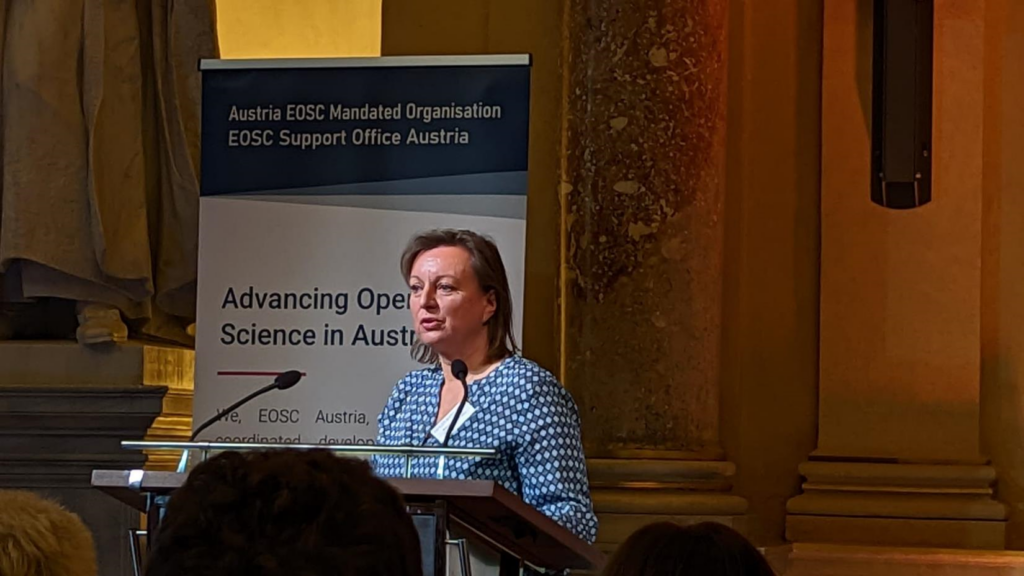
Petra Karlhuber (ACONET Association)
Photo: Bernd Saurugger (TU Wien)
